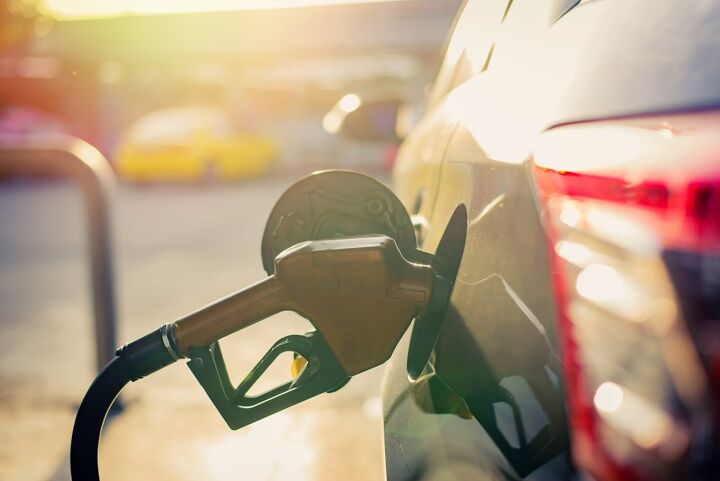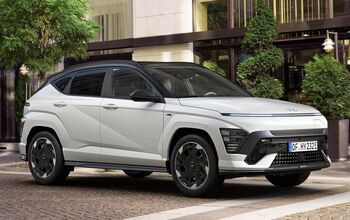Gas War: California Regulators Say Biden Should Embrace State's Emission Plan

While multiple states launch mandatory election recounts and President Trump throws around lawsuits like confetti Joe Biden and the mainstream media are preparing for his ascension from regular old man to Leader of the Free World — though that title doesn’t seem to get much play these days. Biden has already started holding meetings with foreign leaders and experts on how to go about heading the United States. Apparently, there’s even been some progress on how to govern the nation.
On Thursday, California Air Resources Board (CARB) Chairwoman Mary Nichols said the state’s arrangement with major automakers over fuel efficiency requirements would be ideal for the presumed Biden administration — which has promised to implement some of the most ambitious emissions standards the world has ever seen. Nichols also expressed excitement at the possibility of heading the U.S. Environmental Protection Agency (EPA) under a Biden presidency and is reportedly under serious consideration for the position.
“[There is] a huge volume of stuff that needs to be reversed and repudiated,” she said of the Trump administration’s EPA, adding that some of the President’s policies could be undone “informally” via “negotiation and good will.”
Despite a prolonged (and rather nasty) political deadlock, the Trump administration finalized its rollback of U.S. Corporate Average Fuel Economy standards in March. Rules currently require 1.5 percent annual increases in efficiency through 2026 — a concession to appease Democrats angry with the original proposal, although substantially lower than the 5 percent annual increase the Obama administration demanded before being supplanted. Of course, those targets were ultimately deemed unsustainable by the very same people that penned them — which makes us wonder why leadership seems so eager to see them reintroduced. But one could lose their mind wondering why the government is so consistently inconstant.
California and a coalition of supportive states have long been standing against Trump’s national fuel rollback and have vowed to retain the Obama-era rules. Ford Motor Company, Volkswagen of America, Honda, and BMW even pledged their support ( resulting in a brief antitrust suit) and promised to adhere to a higher standard while other manufacturers stayed neutral or sided with the Trump administration’s deregulation strategy.
CARB has long been a proponent of strengthening Corporate Average Fuel Economy (CAFE) standards but has recently pivoted setting hard limits on the types of vehicles that can be sold to the public and encouraging the widespread adoption of electric vehicles. It’s also been trying to export that mindset to the rest of the country, with success often dictated by how much a region’s economy is dependent upon a thriving oil industry.
From Reuters:
Nichols said fuel efficiency requirements should be increased but added: “I don’t think honestly the future of CAFE is the relevant question … This is not where the action is.”
She told Reuters CAFE standards, first adopted as part of a 1975 law, are “not the most relevant tool for dealing with the future of transportation in this country or globally” as the industry shifts away from internal combustion vehicles toward electric and other zero-emissions models. “Our future is not with the internal combustion engine.”
This year, California Governor and lifelike Ken doll Gavin Newsom directed CARB to draft regulations to ban the sale of gasoline-powered passenger cars starting in 2035. While Nichols has said the goal presents real logistical challenges for the state, she believes it’s a policy worth pursuing.
[Image: CC7/Shutterstock.com]

A staunch consumer advocate tracking industry trends and regulation. Before joining TTAC, Matt spent a decade working for marketing and research firms based in NYC. Clients included several of the world’s largest automakers, global tire brands, and aftermarket part suppliers. Dissatisfied with the corporate world and resentful of having to wear suits everyday, he pivoted to writing about cars. Since then, that man has become an ardent supporter of the right-to-repair movement, been interviewed on the auto industry by national radio broadcasts, driven more rental cars than anyone ever should, participated in amateur rallying events, and received the requisite minimum training as sanctioned by the SCCA. Handy with a wrench, Matt grew up surrounded by Detroit auto workers and managed to get a pizza delivery job before he was legally eligible. He later found himself driving box trucks through Manhattan, guaranteeing future sympathy for actual truckers. He continues to conduct research pertaining to the automotive sector as an independent contractor and has since moved back to his native Michigan, closer to where the cars are born. A contrarian, Matt claims to prefer understeer — stating that front and all-wheel drive vehicles cater best to his driving style.
More by Matt Posky
Latest Car Reviews
Read moreLatest Product Reviews
Read moreRecent Comments
- Analoggrotto Finally, some real entertainment: the Communists versus the MAGAs. FIGHT!
- Kjhkjlhkjhkljh kljhjkhjklhkjh *IF* i was buying a kia.. (better than a dodge from personal experience) .. it would be this Google > xoavzFHyIQYShould lead to a 2025 Ioniq 5 N pre-REVIEW by Jason Cammisa
- Analoggrotto Does anyone seriously listen to this?
- Thomas Same here....but keep in mind that EVs are already much more efficient than ICE vehicles. They need to catch up in all the other areas you mentioned.
- Analoggrotto It's great to see TTAC kicking up the best for their #1 corporate sponsor. Keep up the good work guys.


































Comments
Join the conversation
Yes the collapse of the Soviet Union and the Defense Drawdown along with a booming economy did help. I doubt there will be an attempt to balance a budget anytime soon especially with Covid-19 and the aftermath.
Eventually EVs or hydrogen powered vehicles could outnumber ICE vehicles but that is a long long way off and it will be more to do with advances in battery technology, lower costs that will make them more competitive, and more infrastructure to support them but that is likely to be a couple of decades away from now. I am not too worried because I will either be dead or too old to drive. For now there is not a lot of incentive for most people to switch to EVs especially those who are out of work or those not making a living wage. There are and will still be a lot of old hoopties on the road for the foreseeable future and even the politicians will have to recognize that for those who cannot afford newer vehicles and where mass transit is not a feasible alternative. I have nothing against EVs but it is not feasible to force people into them especially if they lack the resources to buy them.